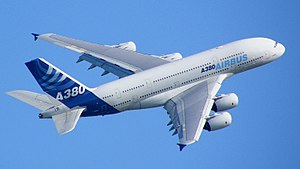Beginning this Saturday, air travelers will be required to provide their date of birth and gender status when making airline reservations to comply with Transportation Secretary Administration's "Secure Flight"program; the program is designed to transfer responsibility for checking air passengers' identities from the airlines to the federal government.
The new Secure Flight program requires travelers making reservations -- as well as non-traveler escorts who enter secure areas -- to provide three pieces of information: the passenger's full name on government issued ID, birth date and gender. The airline will transmit that information to the TSA for screening on a "no-fly" list of people prohibited from flying or to a list of "selectees" who can fly after they pass additional physical screening.
TSA claims records for individuals who are not identified as potential matches will be retained for 7 days after the full completion on their flight itinerary, but if you happen to have a name similar to a name on the "no fly" list (don't assume all the names are Arab), even if you're eventually cleared, your identifying records, as well as your full flight itinerary, will be maintained for 7 years. Furthermore, even if you're not on the "no fly" list, the government, at their discretion, may choose to conduct additional criminal searches on travelers from state and federal law enforcement data bases.
My guess is that even if the government does purge the names of travelers who are not identified as potential matches after 7 days, those names, along with their travel itineraries, are transferred to a secondary archived data base.
Privacy Impact Assessment for the Secure Flight Program (pdf)
TSA will retain records for most individuals encountered by Secure Flight for a short period of time. Records for individuals who are not identified as potential matches by the automated matching tool, which comprise the vast majority of travel records held by TSA, will be retained for seven (7) days after the completion of the individual’s directional travel for audit purposes. Records for individuals who are potential or confirmed matches will be retained for no less than seven years after the completion of the individual’s directional travel, as outlined in section 3.0 of this PIA.
What information is to be collected?
Airlines currently collect information from passengers and non-travelers that is necessary both for security purposes and for ensuring passenger comfort during their flights to their destinations.
Under the Secure Flight Final Rule, TSA will require covered aircraft operators to send to TSA Secure Flight Passenger Data (SFPD) that will consist of the below listed elements, to the extent available.
(1) full name;
(2) date of birth;
(3) gender;
(4) redress number (if available);
(5) known traveler number (if implemented and available); and
(6) passport information (if available).
For non-traveling individuals for whom the aircraft operator seeks authorization to enter an airport sterile area (such as to escort minors or passengers with disabilities), TSA also is requiring covered aircraft operators to request from the non-traveler the same information requested from passengers and transmit to TSA that information as well as certain non-personally identifiable information used to manage messages between covered aircraft operators and TSA, including the airport code for the sterile area to which the non-traveler seeks access.
TSA will maintain records for non-traveling individuals for seven 7 days unless they are designated as potential matches, in which case they'll maintain records for 7 years.

No comments:
Post a Comment